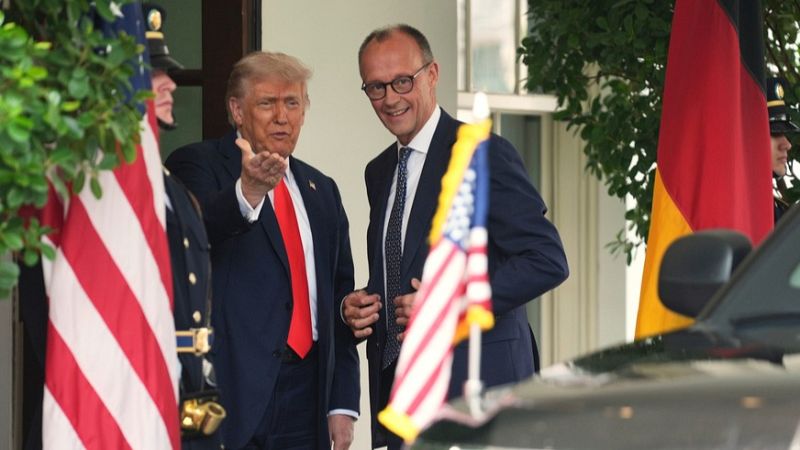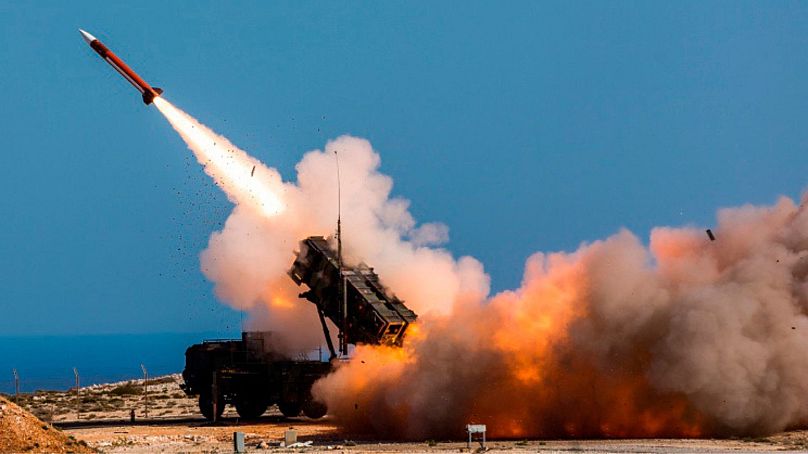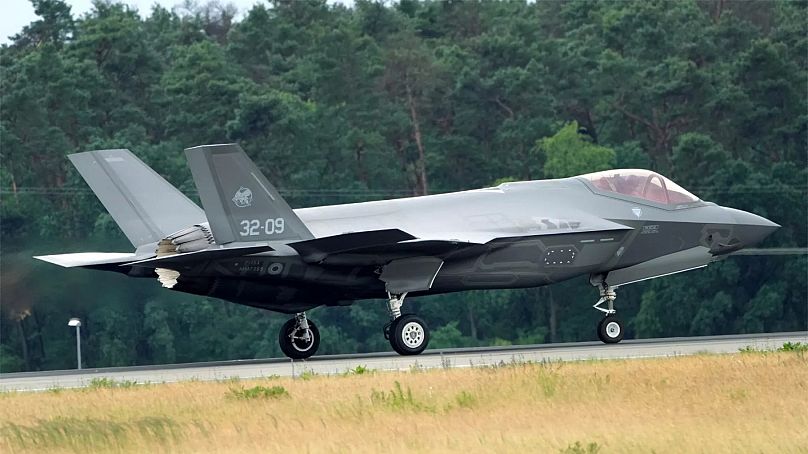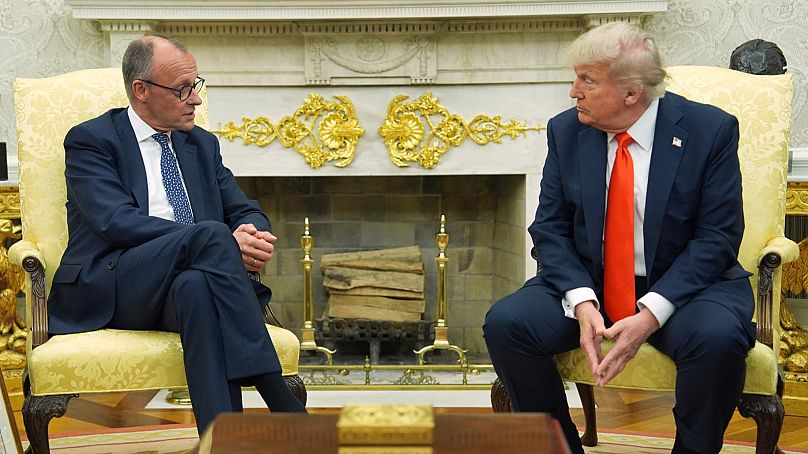
Germany plans to spend up to €83 billion on European-made weapons and reduce dependence on US defence systems as Chancellor Friedrich Merz pushes to build Europe's "strongest conventional armed force" amid doubts about Washington's reliability under Donald Trump.
According to reports, the German government plans 154 major defence procurements between September 2025 and December 2026, with only 8% from US suppliers compared to the previously heavy reliance on US systems.
The shift follows US President Trump's demands that NATO partners increase their defence spending to 5% of GDP, while purchasing more US weapons, prompting Berlin to pursue a "Buy European" strategy.
Europe's dependence on American defence equipment has increased significantly in recent years. According to the Stockholm-based peace research institute SIPRI, arms imports from the US to Europe - including Ukraine - more than tripled between 2020 and 2024 compared to the previous five years.
For the first time in two decades, the largest share of US arms exports went to Europe, rising from 13% (2015-2019) to 35% (2020-2024). Overall, the European NATO states doubled their arms imports during this period, with two-thirds coming from the US.
Germany recorded a particularly drastic increase: arms imports rose by 334%, around 70% of which came from the US.
The US also continued to expand its leading role globally. Its exports increased by 21% between the two five-year periods, and its share of the global arms trade grew from 35% to 43%.
Now Berlin wants to take a new course, in line with the "Buy European" motto.
What about the US-made 'kill switch'?
According to US expert and author Dr Josef Braml, this move should not be seen as a mistake of confusing cause and effect.
"The cause was that Trump made it clear that America can no longer be relied on," Braml told Euronews. Now that this has become clear, "it no longer makes sense to pay tribute for protection that we no longer get," he added.
According to Braml, this "tribute" was paid by buying US weapons that made Germany and other European countries dependent on US systems.
These include the Patriot defence system, of which Germany currently still has six. The system is considered one of the most modern and powerful air defence systems in the world.
According to US domestic media outlets, the US government has temporarily halted the export of these systems as the Pentagon considers them to be in short supply and wants to reserve them primarily for its own use.

However, there is still no European solution for some weapon systems. This includes the F-35 fighter jet, for example.
Christophe Gomart, a former head of French military intelligence and current MEP for the European People's Party, put forward the theory of a so-called "kill switch" this year.
According to Gomart, the US would install a blocking system in the jets that could be activated if the Pentagon does not approve the flight plan.
However, the existence of the "kill switch" could not be confirmed, as there is "no way to simply switch off the F-35 remotely", a spokesperson for the German Ministry of Defence told public broadcaster ARD's flagship news programme Tagesschau.

The German government is thus maintaining its order for the jets. "The F-35 is a fifth-generation fighter aircraft that does not yet exist in Europe," a spokeswoman for the Federal Office of Bundeswehr Equipment, Information Technology and In-Service Support (BAAINBw) told Euronews.
"Thanks to its stealth technology, it is almost impossible to recognise. If the armed forces make such demands of us, we can only buy from the US," she said.
'Sovereignty also means that you can protect yourself'
Pieter Wezeman, researcher at the Stockholm Peace Research Institute SIPRI and co-author of the study on the latest figures for European arms imports from the US, emphasises, however, that Europe is already taking countermeasures.
"The NATO states in Europe have taken steps to reduce their dependence on imports and strengthen their own arms industries. But the transatlantic relationship in the defence business has deep roots," Wezeman said.
The Marshall Plan and NATO laid the foundations for security and economic relations between Germany and the US after World War II. Since Trump took office, the German government has endeavoured to maintain bilateral relations. Nevertheless, the German course is running counter to the US president's expectations.
Trump started his second term in office with the promise of "America First". This series of political measures aims to make foreign and domestic policy decisions that prioritise the interests of the US over those of all other nations.
As recently as February, Trump called on NATO partners to increase their defence spending to 5% and procure US weapons. In his budget, the so-called "One Big Beautiful Bill", Trump has earmarked around $150 billion in mandatory funding for the Department of Defence as part of his "Peace through Strength" agenda.
According to Braml, the US can rely on its own defence industry, especially when it comes to spare parts or software for individual systems. "Sovereignty also means that you can protect yourself," he said.
If this is not the case, Braml believes that we are making ourselves vulnerable to blackmail.
During his first official visit to the White House, Merz admitted that "whether we like it or not, we will remain dependent on the United States of America for a long time to come."

'Security is gone, Pax Americana dead'
"We are living in a new era, in a multipolar world order, and if we do not succeed in establishing Europe as an independent pole, then we have lost in this world in which the strong do what they can and the weak suffer," Braml explained.
Ultimately, however, a glance at the patent statistics shows that when it comes to defence technology, Washington continues to set the pace in Europe.
According to a study by the German Institute for Economic Research (IW), US companies registered almost 18,000 patents between 2015 and 2021, while all 27 EU member states collectively registered fewer than 12,000 patents.
With around 4,300 patent applications, Germany ranks second in the EU after France, but is heavily dependent on US companies overall.
Continuing as before is therefore not an option for Braml. "Security is gone, Pax Americana is dead," he concluded.






